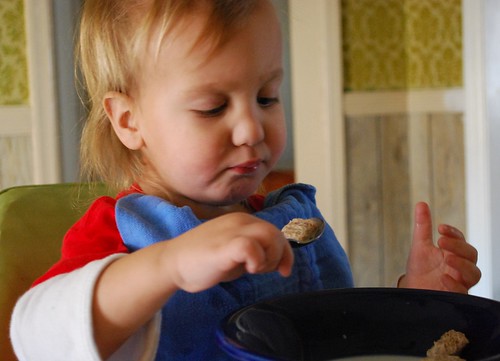I wrote here about the struggles that arise when your parents disagree with your parenting. The feedback was overwhelming and I have decided to share my own story of going against the grain and my path to attachment parenting. I do this in the hopes that you will take a few minutes to share your stories about overcoming prejudice, digging deep to make wise decisions, and sometimes defending those decisions. In a world where many moms and dads (including me) live far away from most of their extended family, in a world where attachment parenting seems radical, stories and advice from people like you are what inspired me, encouraged me, and ultimately kept me from pulling all my hair out. Let’s collect stories and be a tribe of support and encouragement to one another. (Here is my story of going against the grain during pregnancy.)
Can I just get something of my chest? Going through Labor and Delivery is not the same as going through brain surgery! For brain surgery you need anesthesia, an operating room, IV’s, and monitors. You also need to schedule brain surgery in advance. You do not need anesthesia for Labor and Delivery. You do not need to be in an operating room for Labor and Delivery. You do not need to be hooked up to IV’s and monitors for Labor and Delivery. You do not need to schedule your Labor and Delivery.
Sure, sometimes women make more medicalized choices. I know several Attachment Parenting moms who hate Fetal Heart Rate Monitors and only have periodic monitoring or none at all. I also know Attachment Parenting moms who feel confident knowing (via Fetal Heart Rate Monitors) that baby is doing great and they can just focus on laboring. Women choose hospital births. (I did!) Women choose homebirth. Sure, sometimes interventions are necessary. Inductions (like mine) save mothers and babies from the real risks of eclampsia. Babies lives are literally saved through C-sections. But all these interventions that are necessary for everyone facing brain surgery are not necessary for everyone who is in labor.
My extended family and friends have had a hard time grasping this concept. People thought I was “radical,” “liberal,” even “putting my unborn son in danger” because of my decisions regarding Labor and Delivery. Many people are raised viewing childbirth as a medical event. Many people don’t question something their doctor says is safe.
I was pretty open about my plans and hopes for my labor and delivery. People questioned me, thought I was crazy, didn’t understand. My mom (while I was 8 centimeters dilated and panting through a contraction) raised a fuss because I had chosen to stay in a skirt and tank top instead of put on a hospital gown. So just imagine how she reacted when I was considering a homebirth!
The thing that frustrates me the most are uneducated comments. I can deal with sincere curiosity, incredulity, even open disagreement or the inevitable “Well what if…” questions. But when people just repeat something they’ve heard or learned from a TV show… I find it difficult to stay calm and not let their comments get to me.
How do you walk the line between respectfully educating someone and just letting a lost cause go?
The best advice I received regarding Labor and Delivery came as a question from my husband: “Doesn’t making a birth plan set you up to be disappointed?” My husband and I did make a birth plan together. We researched, talked, argued, agreed, and disagreed. In the end we had a learned a lot about our choices and possible challenges we might face and how we would face them. And then we threw that birth plan away. No really, I didn’t even save a copy of it on my laptop.
This choice has earned me some weird looks even among my Attachment Parenting friends, but going into Labor and Delivery without a specific plan is awesome! I ended up having a completely different birth than I had expected, but I was able to go with the flow and make educated decisions along the way. (If you’re a birth story junkie like me you can read my long and detailed story of my son’s arrival here).
Did you do anything against the grain with your labor and delivery? How did you deal with comments and worries from family and friends? Do you try to educate people about childbirth choices or do you just let it go? Did you have a birth plan? Share your stories in the comments!





